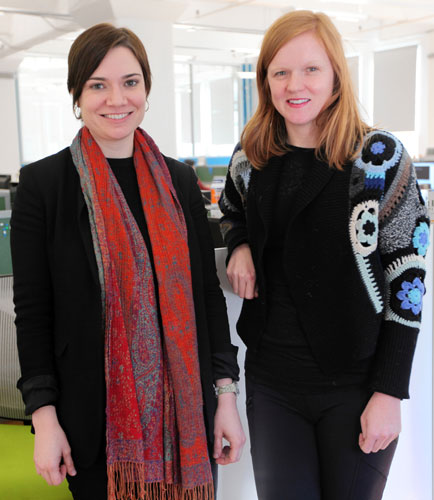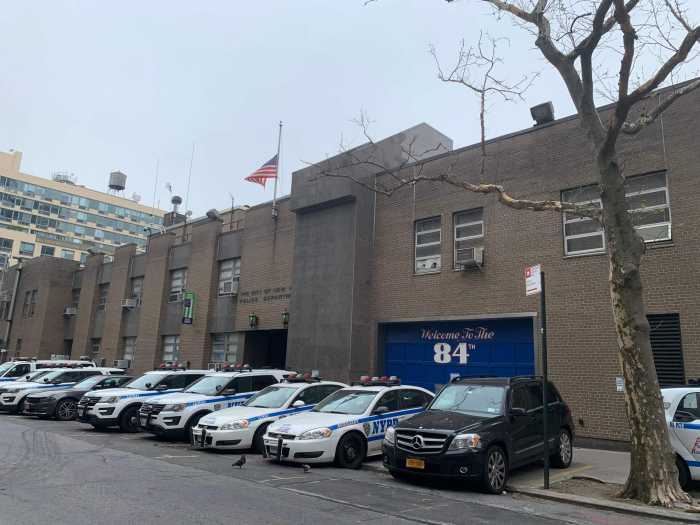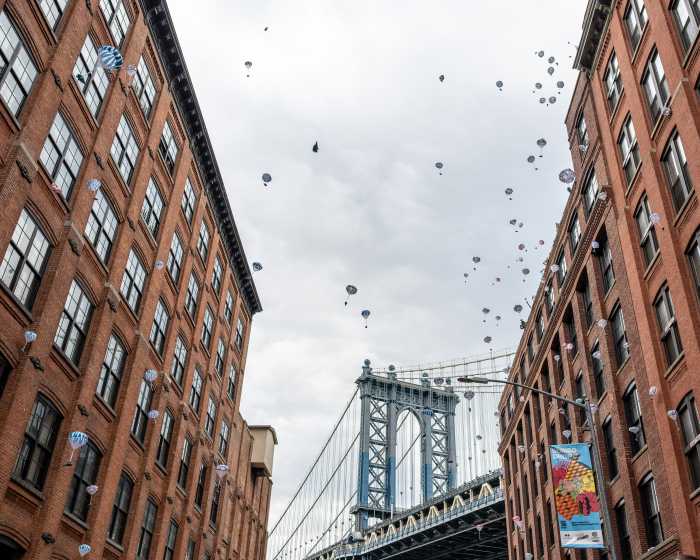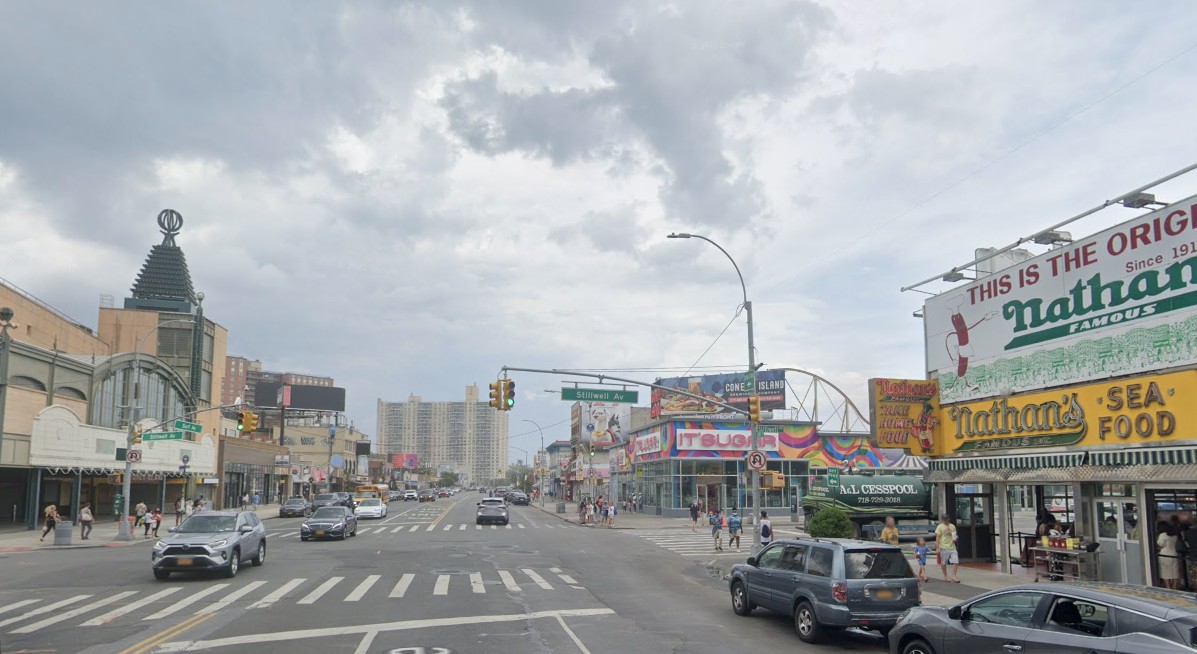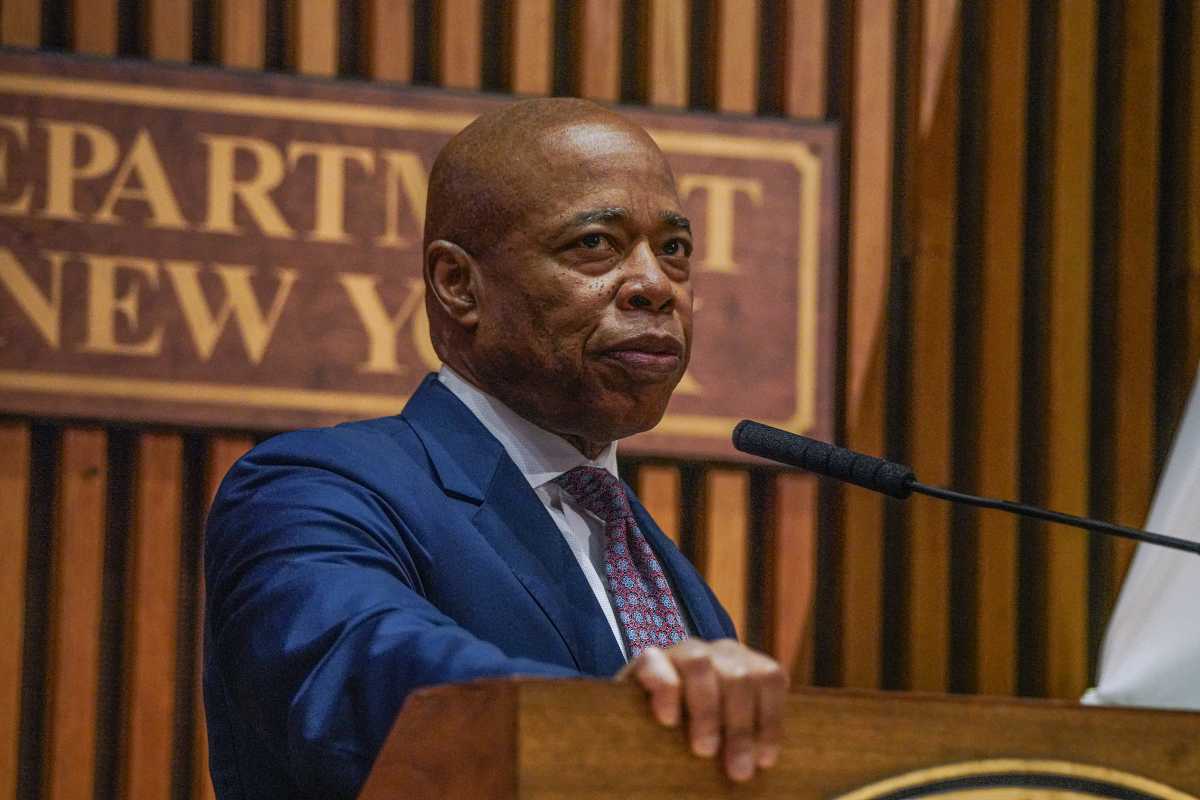Forget storks, this is where techies come from.
DUMBO’s future tech titans are working together in a handful of incubators — co-working spaces for new start-up companies — which have become nurturing nests of innovation in Brooklyn’s lauded Tech Triangle.
The NYU-Poly incubator, one of the newest in the area, just hatched its first company: TENDIGI, an app developer now with six employees, which grew too large to stay in the small space. NYU-Poly’s DUMBO incubator, a space at 20 Jay Street hosting 15 small companies on about twice that many desks, encourages companies to take wing once they get to be about five employees, or have stayed for a maximum of two years.
“The incubator scene is representative of how the nature of business is changing,” said Andrew Zarick, the co-founder and CEO of Digital DUMBO, which organizes tech gatherings to connect entrepreneurs, innovators, and creators, and is also a tenant at the NYU-Poly incubator. “Businesses need to keep up with the pace of change. Most larger companies have pretty bureaucratic structures, but if you look at start-ups and the model of co-working, it shows that they are spaces to bring an idea to life.”
A number of incubators have sprouted up in DUMBO since it began its reign as the tech capital of Brooklyn — three on as many blocks of Jay Street alone.
Studiomates set up shop at 10 Jay St. at John St. in 2010, while DUMBO Start-up Lab, at 68 Jay St. between Water and Front streets, expanded to a new loft last spring.
NYU-Poly’s incubator, a public-private partnership between NYU-Poly and the New York City Economic Development Corporation, is right between them.
The young entrepreneurs honing ideas, mobile apps, programs, and websites say sharing a space is all part of a culture of creative collaboration that helps their start-ups grow and innovate.
“The number one thing is being able to be around our peers, and being able to bounce ideas off each other, pitching to people and getting honest feedback,” said Tanya Menendez, who with Matthew Burnett and Scott Weiner co-founded Maker’s Row, a website headquartered at the NYU-Poly incubator that provides a database of local factories and manufacturing plants all over the country for retailers that want to source goods domestically.
Others laud the incubator for providing the knowledge, resources and connections that would be difficult to access alone.
“Coming from the arts and non-profit world, we’d never heard the word ‘monetization,’” said Dana Karwas, of BLDG BLOK, a soon-to-be launched app that will use commentary and video to bring historic urban landscapes to life in a sort of on-demand multimedia walking tour.
“We were pitching to VCs [venture capitalists] from the second day,” said Liz McEnaney, who founded the company with Karwas after they met working at the Maya Lin Studio.
The entrepreneurs get cheap rent — about $400 a seat per month, thanks to some help from the landlord, Two Trees Management Company — as well as access to events, courses, and connections to mentors, professionals, investors, and legal experts, all of which fosters an environment of healthy competition, participants say. And it gives dreamers a reason to take the leap necessary to get that idea in their head off the ground.
“As far as our start-up, the incubator did give us this opportunity, that I don’t think we would have taken if [the incubator] didn’t exist,” said Karwas.
That’s the point, according to NYU-Poly’s director of incubator initiatives, Micah Kotch.
“We think by offering all this, we create a more efficient market,” said Kotch. “We think the companies who are going to succeed are going to succeed faster. There’s real value in that.”
Reach reporter Eli Rosenberg at erosenberg@cnglocal.com or by calling (718) 260-2531. And follow him at twitter.com/emrosenberg.
